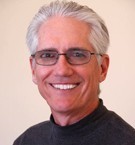My previous post garnered some lively response, to say the least. Murray Vasser offered the most thoughtful and pointed critique. Since my response would not fit in a comment slot, I’ve posted it separately to contribute to the ongoing dialogue
Before you read what follows, please take the time to read the original post, along with Murray‚Äôs comments. [Disclaimer: This series of posts represents one professor‚Äôs opinion, not the position of ļŕ›ģ ”∆Ķ or Talbot School of Theology.]
Murray:
You are not being impertinent at all. Those are legitimate challenges that help us all to think more carefully about our positions. I am, of course, properly rebuked by your questions, since I find myself answering in the affirmative in each case. Yet, as a historian, I cannot help but remain troubled by the inverse relationship I see, over the centuries, between the purity and power of God’s people, on the one hand, and the degree to which the church has had access to political power, on the other. Religious nationalism ultimately failed in OT Israel, and it has failed in most of Christian history, as well (Constantine and his successors, Charlemagne, the Crusaders). There are, of course, wonderful exceptions (e.g., Abraham Kuyper in the Netherlands), but the point remains a valid one. I stand by much of what I wrote, in principle, at any rate.
So how do I harmonize an affirmative response to your questions with my convictions about Christians and American politics? Well, let me ‚Äúthink out loud‚ÄĚ a bit here, hoping that further dialogue will help to sort this out.
First of all, it seems to me that much of the politicking that goes on in evangelical circles has a whole lot more to do with (a) ‚Äúrestoring‚ÄĚ or somehow ‚Äúre-Christianizing‚ÄĚ America, than with (b) fighting against the oppression, marginalization, or murder of those who have no voice. The former endeavor, moreover, is consistently wed to a particular political party, carrying in tow all the polarization that currently characterizes partisan politics at both state and national levels.
I find it revealing, Murray, that each of the issues you raised relates directly to ‚Äúb,‚ÄĚ above, and only secondarily, if at all,¬† to ‚Äúa.‚ÄĚ That is, I hear in your challenges a passion for people‚ÄĒnot a passion for Christian nation. If I am hearing you correctly, we may have a bit more common than you think.
As I reflect on your comments, Murray, I find myself more than ready, for example, to encourage my church to champion the cause of the unborn, but much less inclined to jump on the ‚Äútraditional marriage‚ÄĚ bandwagon (Prop 8 here in CA), since the latter is so often tied up with the Constantinian project of ‚Äúre-Christianizing‚ÄĚ American culture‚ÄĒa project which, I remain convinced, is doomed to failure. My challenge as a pastor, then, is to help my people see the difference. This is not an easy task given the polarizing fervor among numbers of evangelicals (fueled by conservative talk radio) concerning the upcoming election.
Finally, Murray I suspect that defining issues like the ones you raised‚ÄĒwhere the church should speak in a unified voice to the culture‚ÄĒare rather rare. Your list (slavery‚Äďholocaust‚Äďcivil rights) covers nearly two centuries. Some generations of Christians will likely not face situations like these at all.
So, I suppose I should qualify my original comments by applying them generally to the relationship between Christians and the political arena. The church‚Äôs involvement in such defining issues then becomes exceptional‚ÄĒrather than characteristic‚ÄĒwhere the relationship between ‚ÄúJesus and politics‚ÄĚ is concerned. If the church is to become politically active, we should save our efforts for key issues like the ones you raised, and eschew ongoing nationalistic agendas that are closely aligned to a particular political party.
 ļŕ›ģ ”∆Ķ
ļŕ›ģ ”∆Ķ
.jpg)


